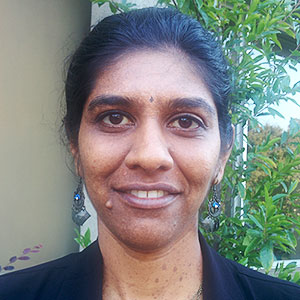Session Abstract – PMWC 2017 Silicon Valley
Session Synopsis: Precision medicine centers are now an integral part of research and medical institutions. However, they face many challenges as they integrate enabling-technology platforms to achieve throughput goals, build biological repositories, analyze data, or enable translational research. This session will reveal some of the challenges, solutions, observations and best practices that a number of these centers encounter.
Session Chair Profile
Ph.D., Director, The Israel National Center for Personalized Medicine, Weizmann Institute, Rehovot, Israel
Biography
Previously Dr. Strulovici conducted postdoctoral research under the guidance of Professor Robert J. Lefkowitz at the HHMI Duke University Medical School in Durham, NC. Berta has a track record in building and leading outstanding, productive teams, while integrating innovative processes into seamless, successful enterprises in start-up and large Pharma environments. She served as Director R&D at Tularik, the first start-up focused on targeting transcription factors in disease. At Merck Research Laboratories (MRL) in North Wales, PA, Berta served in positions of increased responsibilities over a period of 12 years. As Vice President of Basic Research in charge of building a state-of-the-art Center of Excellence for early drug discovery for Merck Worldwide, she and her team were involved in the discovery of lead compounds that are currently in clinical trials for various diseases. In 2012, Berta established the G-INCPM with the mandate to develop and implement novel technologies in genomics, proteomics, bioinformatics and Chemical Biology to enable and advance Personalized Medicine and life sciences in Israel.
Talk
Integrated Technological Platforms to Advance Science and Medicine in Israel
The Nancy and Stephen Grand Israel National Center for Personalized Medicine (G-INCPM) at the Weizmann Institute brings together world-leading basic and clinical researchers from all over Israel. The unique strength of G-INCPM lies both in the integration of enabling-technology platforms and the strong ties with academic researchers, creating a scientific momentum that extends technological boundaries. This talk will highlight specific examples of complex projects that take advantage of our integrated infrastructure to enable a deeper understanding of the patient and their response to therapies, with the potential for a more personalized treatment.
Speaker Profile
Ph.D., Professor, KTH Royal Institute of Technology, Stockholm, Sweden
Biography
Uhlen is a professor at the Royal Institute of Technology (KTH), Stockholm, Sweden. His research is focused on protein science, antibody engineering and precision medicine and range from basic research to more applied research, including clinical applications in cancer, cardiovascular diseases, autoimmune diseases and neurobiology. Since 2003, he has led an international effort to create the Human Protein Atlas and he recently initiated the SCAPIS SciLifeLab Wellness Profiling project in which individuals are followed by repeated analysis every third months with omics-based analysis. Uhlen´s research has resulted in more than 550 publications with a current h-index of 98 (Google Scholar). He is member of the National Academy of Engineering (NAE) in USA, the Royal Swedish Academy of Science (KVA), the Swedish Academy of Engineering Science (IVA) and the European Molecular Biology Organization (EMBO). He was, starting in 2010, the founding Director of the Science for Life Laboratory (SciLifeLab), a national center for molecular bioscience.
Talk
The SCAPIS SciLifeLab Wellness Profiling Program
Based on the Human Protein Atlas (www.proteinatlas.org) effort to map the human proteome (Uhlen et al, Science, 2015), we have launched a wellness profiling effort in which individuals have been monitored every three months and analyzed using whole genome sequencing, cell analysis, proteomics, metabolomics and microbiome analysis.
Speaker Profile
M.S., Bioinformatician, Stanford University
Biography
Vandhana is a bioinformatician at the Stanford Center for Genomics and Personalized Medicine and is embedded with the Clinical Genomics Service R&D team at the Stanford Hospitals. Her current role involves implementing scalable, repeatable and traceable computational pipelines on the cloud. Her focus is to establish best practice analysis protocols in a systematic data driven manner and eke out maximum accuracy from sequence data. Vandhana is passionate about genomics based research and personalized medicine to aid physicians with diagnosis of diseases and conditions. Previously, Vandhana was a researcher at the Western Regional Small Grains Genotyping Laboratory, USDA-ARS where she led the bioinformatics research and services including building the facility’s computational core. Vandhana received her Master’s in Computer Science from Washington State University and a Master’s in Bioinformatics and Computational Biology from University of Idaho. Her prior research experiences include human microbiome with an emphasis on women’s health, fruit and archaeal genomics, and wheat genetics.
Talk
Assessment of Variant Calling Pipelines for Clinical Diagnosis
As clinical genomics becomes increasingly prominent, there is still no standard method for variant detection, hence pipeline evaluation is critical. Challenges include finding a reliable truth set to measure sensitivity and specificity, and ambiguity of variant classification between tools. Our reproducible approach tests and validates SNP/Indel calling pipelines using NIST data and precision FDA metrics.
Speaker Profile
Ph.D., R&D Manager, VA Palo Alto Health Care System
Biography
Cuiping is a R&D manager associated with VA Palo Alto. She assists genomics research in the Million Veterans Program, helping to build computational solutions to process and analyze tens of thousands of exomes and genomes. Prior to joining VA, she did her postdoctoral study in the Department of Genetics at Stanford University.
Talk
Million Veteran Program Builds a Mega-biobank for Human Disease Research
The Veterans Health Administration is America’s largest integrated health care system, serving 8.8 million Veterans each year. Built on top of its longitudinal electronic health record, the Million Veteran Program (MVP) aims to construct a mega-biobank and a large database consolidating their genetic, military exposure, health, and lifestyle information. In August 2015, MVP marked its milestone of 500,000th voluntary enrollment, enabling numerous human health and disease research that are to inform precision medicine for patient care.







